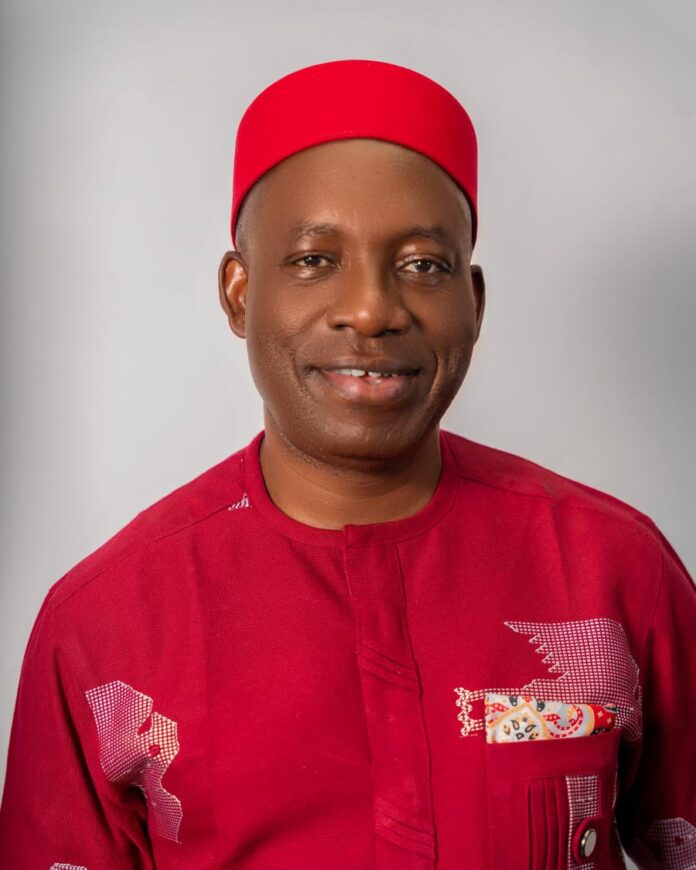Soludo charged the traditional rulers to give maximum support to his administration.
By Jeffrey Agbo
Anambra State Governor Chukwuma Soludo has reinstated the suspended traditional ruler of Neni in Anaocha Local Government Area of the state, Igwe Damian Ezeani.
The governor suspended Igwe Ezeani on January 8 for violating the Code of Conduct of Chieftaincy. The monarch conferred a chieftaincy title on Senator Ifeanyi Ubah who is not his subject without following due process.
Soludo also “forgave’’ two other traditional rulers who breached the Anambra traditional rulers Code of Conduct, according to the governor’s press secretary, Christian Aburime, on Wednesday.
Traditional rulers “forgiven’’ after they tendered apologies to government in the responses to queries issued to them for violating the Code of Conduct for Chieftaincy were Igwe Gerald Mbamalu of Ojoto and Igwe Felix Ebelendu of Aguluezechukwu.
Mr Aburime said in Awka that the government’s decisions were taken at its meeting with traditional rulers as part of consultations with stakeholders to review government’s activities.
Addressing the meeting, Soludo listed his past achievements and appealed for support to do more.
Soludo charged the traditional rulers to give maximum support to his administration under the Public-Private-Community Development Programme, a strategy of his administration for the rapid growth of the state.
He noted that the Anambra State Traditional Rulers Council as currently constituted was unknown to the law and illegal.
“The current body violates the provisions of Section 2(F) of the Anambra State Traditional rulers (Amendment) Law (2020).
“The law provides that the council shall be composed of a chairman, two deputy chairmen, and a member from each of the 21 local government areas of the state, all appointed by the governor.
“It provides also that members appointed from each senatorial district shall not exceed 11,’’ he said.
READ ALSO:
Ifeanyi Ubah reacts to Soludo’s suspension of Anambra monarch over chieftaincy title

The law also states that members of the council shall not exceed 36 drawn from the 21 local government areas and the three senatorial districts.
Soludo noted that the present council is composed of 52 members in utter violation of the law.
It, therefore, implied that the body as presently constituted was not known to the law and could not make any valid decisions in the sight of the law, he noted.
The meeting decided that to end the illegality, a committee of five traditional rulers and appointed government officials would be established to consider needed amendments of the law.
Ninety-four traditional rulers attended the meeting where the Obi of Onitsha, Igwe Alfred Achebe, reaffirmed the solidarity of traditional rulers with government in its efforts to transform Anambra into a liveable homeland.
Also addressing the meeting, Commissioner for Local Government, Chieftaincy and Community Affairs, Collins Nwabunwanne, assured traditional rulers of the government’s cordial relationship with them.
“The suspension of the traditional ruler and the querying of two others were in line with the spirit of ensuring law and order in the state,’’ he said.
Nwabunwanne assured that government was looking into concerns raised by some traditional rulers over the composition of members of the state’s traditional rulers’ council.
The traditional rulers, in turn, requested for regular meetings with the governor, and suggested that the meetings should hold twice a year.













